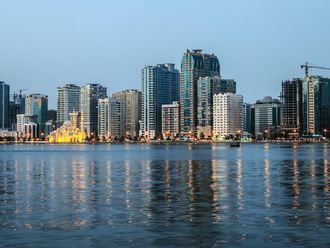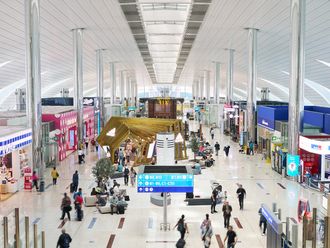
Dubai: Change continues to sweep through the UAE business landscape, and the latest one could be brought on by the Commercial Agencies Law.
Whether it is automotive, pharmaceuticals, fast-food franchises, or any other retail sector, the Commercial Agencies Law was what set the foundation for a brand’s presence in this market. And it meant that the local partner had exclusive rights on the brand and how the brand is managed here.
Through the decades, this Law has defined the relationship between multinational brand owners and their representatives – or ‘agents’ – in the UAE. These relationships have in turn generated great wealth for brand owners and their local agents and helped these brands grow deep roots in the UAE marketplace. Off and on, there have been disputes that crept into the relationship, but they were managed within the framework of the Law.
Will this change? On Sunday (December 26), the Financial, economic and Industrial Affairs Committee of the Federal National Council issued a statement saying that a draft federal law on regulating ‘commercial agencies’ was part of its agenda.
The stated intention is to update the current provisions of the Law – which came into effect in 1981 – to regulate the activity of commercial agencies in the country and “enhance the role of this vital activity in sustainably supporting the national economy and keeping pace with the economic trends adopted by the state”.
In the recent past, the UAE also effected far-reaching change to the ‘Commercial Companies Law’, which allowed foreign nationals to have 100 per cent ownership of the their business in the country. (Only a few essential sectors still require majority shareholding by a UAE National partner or enterprise.)

Monopolies need to go - replace the 'local agents' with multiple dealers to grow a brand and realise the best benefits for all, including UAE consumers
A time for change
“This is the right time to end monopolies,” said Mohammed Al Asoomi, an economist specialising in GCC issues. “Only the Gulf markets were retaining the ‘local agent’ requirement, while the rest of the world had moved on to multiple dealerships and who could offer the best service and price for consumers.
“No one is saying that the current agent should not be included. He can still rely on the infrastructure he built for the brand over the years – but others must be given the opportunity.
"The Commercial Agencies Law requires a major update to be in tune with the times."
"While the Amendment brought some changes to the Law, the relaxation for foreign investors was however limited," says the law firm Baker McKenzie in an overview of the amendment. "On the other hand, the amendment reconfirmed the statutory protections offered to commercial agents."
What could change?
According to Jonathon Davidson, Founding Partner at the DIFC-based law firm Davidson & Co., “Any changes under consideration will have in mind the need to encourage inward investment by established brands.
“The most likely way to approach this would be to allow agents and principals to negotiate their own contractual arrangements subject to legislative guidelines. These would include timelines, termination and renewal provisions that the local courts would enforce in accordance with the individual terms of each agreement.”

The emphasis appears to be to give the choice to brand owners either to appoint, and change, local agents on fair contract terms, or to allow them to undertake their own distribution without the need for a local agent.
Focal point
In other words, flexibility on contracts is what would be the most likely outcome of the proposed changes to the Law. Rather than be bound by something that could have been entered into, say in the 1950s, and then remains unchanged in subsequent decades, the proposed changes to the Law could provide shorter contractual obligations for brand owner and the local representative.
Another major departure from the past would be to allow the multinational owner of the brand more control in deciding its presence in this market. “Although the draft law has not been circulated, the emphasis appears to be to give the choice to brand owners either to appoint - and change - local agents on fair contract terms. Or to allow them to undertake their own distribution without the need for a local agent.”
According to market sources, the luxury retail and F&B categories could be in for the biggest change if the Commercial Agencies Law is revised and more flexibility is integrated.

There were some key revisions to the UAE Commercial Agencies Law of 1981 by way the amendments introduced by Federal Law No. 11 of 2020. This meant 'Public Joint Stock Companies' were brought under the ambit of the Law
Tesla template
In this regard, the electric carmaker Tesla has already been a pioneer. When it entered the UAE market, it did so without an official partner on record, and which is the business model that it had followed in all other markets it operates. Because it is in the local automotive sector that the Commercial Agencies Law is well-entrenched.
So, if Tesla has broken the ‘glass ceiling’, change can happen across the auto industry as well in othr categories too. “Earlier, the Commercial Agency rights were limited to a UAE National or a company 100 per cent owned by a UAE National,” said Atik Munshi, Managing Partner at the consultancy Inexpertiza UAE.
In this context, a major revision to the Commercial Agencies Law had already taken place last year. An amendment ensured that ‘public joint stock companies’ where UAE Nationals own 51 per cent could qualify to be under the Law. Even subsidiaries of PJSCs had the right.
“The termination of an agency contract is difficult and mutual consent by principal and agent is required in most cases,” said Munshi. ”Disputes are handled by the Commercial Agencies Committee. “There have been significant changes recently to many regulations in UAE and it is likely that the Commercial Agency Law too would see an overhaul.
“A more flexible principal-agent with lesser exclusivity is likely to take effect. It is part of the UAE Government set of reforms to boost investor confidence and attract more FDI into the country.”

I believe the region would follow the UAE on changes to Commercial Agencies, and this would give global brands even more reason to consider investing directly and owning and operating their businesses
"100% foreign ownership is yet to apply to expat owned restaurants and coffee shop businesses, which covers homegrown as well as international franchises," said George Kunnappally, Managing Director of Nando's. "As and when it happens, I believe a lot more international brands will enter the market and several franchisors would consider buying out their local franchisees and/or entering into joint venture agreements with them.
"This would be similar to what happened in the luxury fashion and beauty space."










